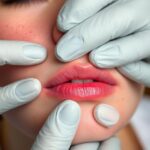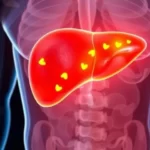A toothache ranging from a mild ache to sharp, unbearable pain can interrupt everything from your sleep to your appetite. Often triggered by underlying problems such as cavities, gum disease, cracked teeth, or exposed roots, tooth pain requires attention. While conventional options like fillings, root canals, or extractions address physical damage, homeopathy offers a holistic path, treating discomfort while supporting your body’s internal healing and emotional balance.
What is a toothache
A toothache begins deep within the nerve and pulp of a tooth, where infection or inflammation can range from dull soreness to intense throbbing or stabbing pain. Warm drinks may soothe some, while others find relief only with cold compresses. Often, this discomfort isn’t just physical; it can carry emotional weight, causing stress or heightened sensitivity. Homeopathic care recognizes these layers, treating both the site of pain and the unique individual experiencing it.
Symptoms of a Toothache
Toothache symptoms can range from mild discomfort to intense, radiating pain that disrupts your daily life. Recognizing these signs early is crucial for timely intervention, especially if you’re exploring homeopathic or holistic treatment options. Below are the most common symptoms that could indicate an underlying dental issue:
- Dull, persistent pain around a tooth or jaw
- Sharp, stabbing pain when chewing or biting
- Throbbing pain that radiates to the ear or neck
- Sensitivity to hot, cold, or sweet foods
- Swelling in the gums or cheek
- Fever or chills (in case of infection)
- Headaches or sinus pressure
- A bad taste or odor from the mouth
These symptoms may come on suddenly or gradually worsen over time. If left untreated, a mild toothache can escalate into a dental emergency.
What Causes Toothache?
Toothache isn’t always caused by cavities alone. The origin of tooth pain can be surprisingly complex. From direct dental issues like infections and trauma to systemic conditions such as heart disease, various factors can trigger or worsen tooth pain. Identifying the root cause is crucial to selecting the appropriate homeopathic remedy for toothache and achieving lasting relief.
- Tooth Decay (Cavities): Bacterial erosion of enamel exposes the sensitive inner pulp.
- Pulpitis: Inflammation of the dental pulp, often due to untreated decay or trauma.
- Dental Abscess: An infection at the root or gum leads to the accumulation of pus and intense pain.
- Cracked Tooth: Hairline fractures irritate or expose nerves, triggering severe pain.
- Gum Disease (Gingivitis/Periodontitis): Receding or infected gums expose tooth roots.
- Impacted Wisdom Teeth: Partial eruption or impaction can create gum pressure and inflammation.
- Teeth Grinding (Bruxism): Chronic grinding wears down enamel and stresses jaw muscles.
- Referred Pain: Pain from heart conditions, such as angina, can mimic a dental ache.
How Homeopathy Works in Dental Pain Relief
Homeopathy views dental symptoms, such as toothaches, as expressions of the body’s effort to restore balance. It utilizes plant- and mineral-derived remedies in diluted forms to gently encourage the body’s natural self-healing process. Instead of simply relieving pain, homeopathic remedies are selected to align with your personal experience, whether that’s nerve-racking sensitivity, inflammation, emotional strain, or acute sensitivity to temperature. The goal is not only immediate comfort but deep, supportive care that helps prevent recurrence.
Homeopathy Remedies
Every toothache is as unique as the person experiencing it. Homeopathy embraces this individuality by offering remedies tailored to not just symptoms, but to the whole person. Whether it’s stabbing pain that keeps you up at night or soreness from dental work, there’s a remedy designed for your specific experience.
Here are some powerful homeopathic remedies, each with a profile that reflects real patient experiences and clinical observations:
Mercurius.
All in all, Mercurius is more often indicated in toothache than any other remedy. Its special indications are a pulsating toothache, due to inflamed dentine or to periostitis of the sockets; it is worse at night and in damp weather. The teeth feel elongated and sore, and this soreness affects the entire jaw and face, worsening with warmth and somewhat relieved by gentle rubbing of the face. It is the chief remedy in painful ulcerations at the roots of the teeth and for pain in the hollow teeth. The gums are swollen, ulcerated, and retracted from the teeth, and there is usually an offensive odor from the mouth.
Chamomilla.
This is an excellent remedy in unbearable toothache affecting a whole row of teeth occurring in paroxysms, with pains radiating to the ears. The special features are the intolerance of pain and aggravation from warmth. It is worse during and after eating warm food, and especially from drinking coffee.
Belladonna
Has toothache from inflammation of dental pulp. The pains are burning and throbbing, worse at night and on contact, such as when chewing and in the open air. There is a red hot face and great nervous excitability.
Coffea.
This remedy will often alleviate the most severe pains of a toothache, which can almost drive the patient frantic. It is characterized by stinging, jerking, intermittent pain, which worsens while chewing and is exacerbated by warm drinks. The pain is temporarily relieved by holding cold water in the mouth, but returns when the water becomes warm. It suits especially hypersensitive and nervous persons.
Plantago major.
Hale says that of all remedies for toothache, none can compare with Plantago, and Hughes supports this statement. The teeth feel elongated, sore, and sensitive to touch, with swollen cheeks. The pains are periodic, easily triggered, and even affect sound teeth; they worsen when lying on the affected side, and sometimes these stabbing and boring pains become very severe.
Silicea.
This remedy is especially suited for abscesses around the roots of the teeth and dental fistulae. The pains are worse when eating warm food or when cold air enters the mouth, and they worsen at night, with the teeth feeling loose.
Calcarea fluorica.
This remedy produces a roughness of the teeth and a decay of the enamel. Dr. R. S. Copeland claims to have observed this condition of enamel decay in a patient for whom he prescribed a remedy for catarrh. It helps flake off of the enamel and deficiency.
Calcarea phosphorica.
With this remedy, there is slow development and rapid decay of the teeth. It suits dental troubles in flabby, emaciated children who open posterior fontanelles and are slow in learning to walk.
Magnesia carbonica is especially useful in cases of toothache or pregnancy, and Dr. Leavitt mentions Sepia as almost specific to this condition.
Staphisagria.
With this remedy, the gums are unhealthy and retracted, and there is a tendency for tooth decay to occur. They turn black and crumble as soon as they appear, a condition found in sycotic children. It is a splendid remedy for gnawing in the roots of decayed teeth, affecting a whole row, and is especially adapted to old women who have a mouthful of painful stumps.
Kreosote.
This remedy helps prevent the premature decay of milk teeth, which can become yellow and dark before eventually decaying. It also alleviates aching pains in diseased teeth. Terebinthina is particularly complementary when the mouth is sore.
Spigelia.
This is an excellent remedy for tearing, beating pains in carious teeth extending to the malar bone of the affected side. Painful jerks in decayed teeth are worse from cold or cold water. The pains set in after eating, smoking, or retiring to test, driving the patient from bed, in their severity. The provings of Spigelia show that it has a remarkable influence over the nerves of the face, jaw, and teeth.
Arnica.
This is a beneficial remedy for bleeding after tooth extraction, as well as for pain and swelling associated with wearing false teeth or pain caused by filing, filling, or excavating teeth. The sensation is one of soreness.
Healing at Home With Expertise
Choose a remedy that resonates with your symptoms: emotional state, the temperature of pain trigger, and nature of the ache. Begin with a 6C or 30C dosage, taken two to three times daily, until relief is achieved. As sensitivity decreases, reduce the dosage. If the pain lingers or worsens, consult a homeopath. For chronic dental sensitivity, advanced remedies in higher potencies may be guided by a professional.
Meanwhile, support healing with nourishing habits: rinse with warm saltwater, apply cold compresses to reduce throbbing, use gentle brushing methods, and take mild pain relievers if needed while waiting for professional care.
When to See a Dentist Immediately
Homeopathy can comfort, but serious conditions still require professional intervention. Severe swelling, fever, prolonged pain, or signs of infection, especially spreading to the jaw or face, warrant urgent dental or medical attention. Remember, homeopathy supports but doesn’t replace necessary dental procedures.
Conclusion
Toothache treatment in homeopathy isn’t merely an alternative; it’s a comprehensive path to relief that addresses pain, immune resilience, emotional balance, and long-term oral wellness. Through individualized care and gentle remedies, homeopathy complements dental practice, empowering you to find relief both instantly and sustainably.
FAQs
What to do for unbearable tooth pain?
Use a cold compress on the cheek, rinse with warm salt water, take OTC pain relievers, and seek immediate dental care if the pain persists.
What is the 3-3-3 rule for a toothache?
This rule suggests taking 3 ibuprofen tablets (200 mg each) three times a day for 3 days to manage pain—only under a dentist’s supervision.
Should I brush my teeth if I have a toothache?
Yes, but brush gently. Avoid the painful area if it’s susceptible, and use a soft-bristled toothbrush with fluoride toothpaste.
What causes toothaches?
Common causes include cavities, gum disease, cracked teeth, dental abscesses, or even sinus infections and referred pain from other parts of the body.
Which finger to press for a toothache?
Applying acupressure by pressing the web area between the index finger and thumb (LI-4 point) may temporarily relieve toothache pain.
How do you relieve nerve pain in your teeth?
Use a desensitizing toothpaste, apply clove oil, or take anti-inflammatory medications as needed. For lasting relief, see your dentist for proper diagnosis.











